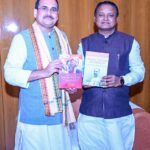AGE-OLD CIVILISATION LACKS CULTURAL GOAL
- By : Anirban Ganguly
- Category : Articles
India’s premier institution for soft power projection, the Indian Council for Cultural Relations, faces a severe existential crisis due to paucity of funds
India seems to lack a coherent and well-articulated strategic cultural vision. When it comes to projecting our soft power and through it to secure our civilisational space in the immediate neighbourhood, we seem to be apathetic, indifferent and oblivious to the growing demands for formulating an effective policy for soft diplomacy and cultural power projection.
The state of India’s soft power initiatives and the institutions expected to spearhead them seems confused and ignored. The Nalanda University — one of the dominant agendas of the Prime Minister’s discussion at the Association of Southeast Asian Nations — mired in procedural delays and subversions, is a stark example of this confusion.
The irony is that the present Nalanda initiative, which passes itself off as the intellectual heir of the Nalanda University of yore, has been unable to attract most of the Buddhist nations of the region. With the exception of Cambodia, Laos and to a certain extent Singapore, the other countries which have signed the memorandum at the Asean summit are New Zealand, Australia and Brunei — countries with no known civilisational contribution to the spread of Buddhism.
No proactive effort seems to have been made to enlist active participation from Japan, Korea and Thailand, and I am trying to be politically correct when not referring to how the Taiwanese and the Tibetans have been overlooked in the entire scheme. China, on the other hand, seems to have been allowed a major say and its propensities appear to have been kept in mind while inviting nations to sign the recent Nalanda memorandum of understanding. An increased Chinese participation in the project stymies the possibilities of other major international players. We have been incapable of identifying our friends and of utilising their age-old goodwill for us when it comes to securing our civilisational voice in the region.
India’s premier institution for soft power projection, the Indian Council for Cultural Relations, faces a severe existential crisis. The ICCR’s Director General has on record said that the organisation is in danger of closing down if additional funds are not immediately provided. The previous Foreign Secretary too lamented the dismal financial status of the ICCR and had told the Standing Committee on External Affairs that many of the cultural centres abroad are facing problems, and many programmes and activities of the ICCR are suffering.
The launch of a number of new cultural centres abroad has been put on hold because of the unavailability of resources. The Standing Committee, which called upon the Union Ministry of Culture to “enhance budgetary allocation” for the ICCR in view of the emerging contours of cultural diplomacy, also noted that it was “essential to expand the network of Indian cultural centres and establishment of chairs abroad”.
While a large cultural hegemon in our neighbourhood strikes a judicious balance between soft and hard strategies through the undertaking of massive cultural outreach initiatives, we seem to flounder and refuse to focus our attention on our inherent cultural strengths. Clichéd references to India’s soft power begin and end with Bollywood’s worldwide appeal, but little concerted effort seems to have been made and thought-process initiated to evolve a long-term cultural strategy.
Benoy K Sarkar, a leading scholar and a product of the Indian national education movement which initiated the ‘greater India’ or the ‘India in Asia’ movement, had described India’s strong ‘world sense’ that had enabled her to become a civilisational meeting point and a cultural mentor to large sections of the globe. Sadly we are just allowing that sense to ebb away, at least culturally.

















